by Rachel McGuire
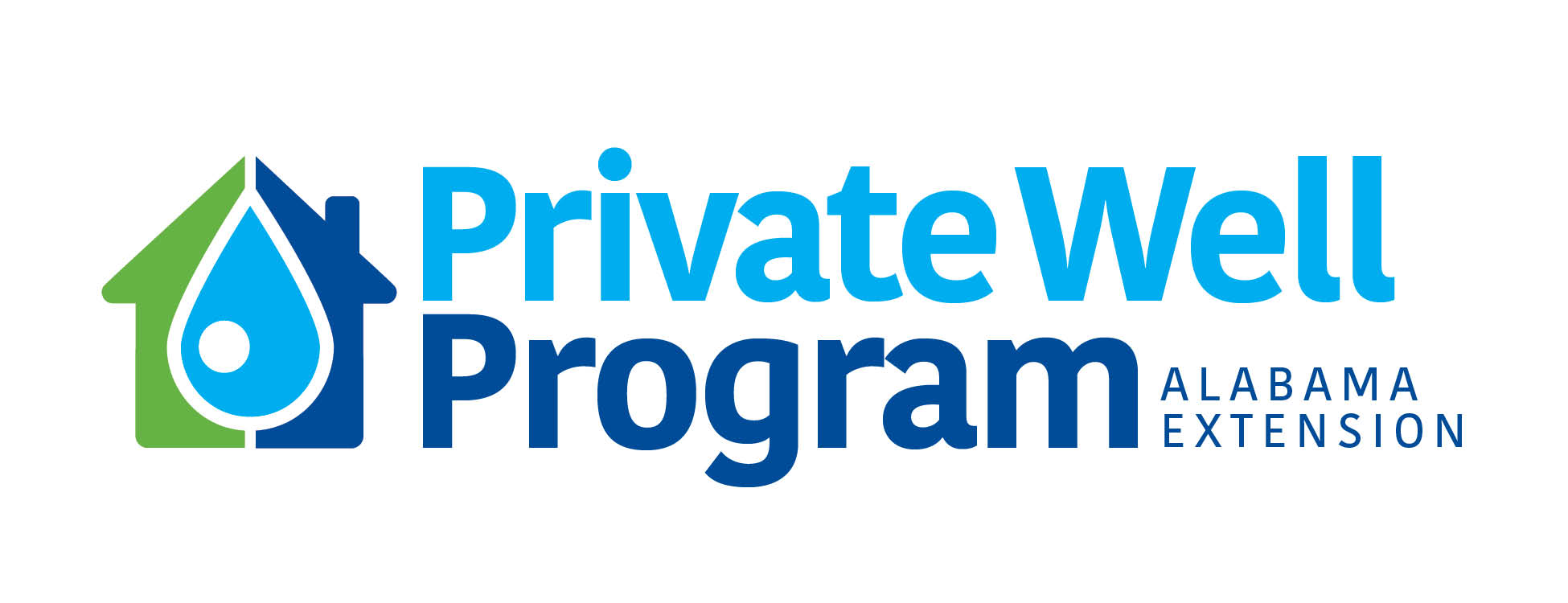
WE SAT DOWN WITH JESSIE CURL, THE FACE BEHIND THE NEW ALABAMA PRIVATE WELL PROGRAM TO GET SOME ANSWERS TO SOME OF THE MOST FREQUENTLY ASKED QUESTIONS REGARDING ALABAMA WELLS AND TO LEARN A LITTLE BIT ABOUT CURL HERSELF.
The Alabama Private Well Program was initiated in 2020 in response to a statewide gap in education and resources around testing and maintaining private well water quality.
How many Alabamians acquire their drinking water from wells?
According to the ADECA Office of Water Resources 2015 Report, 11% of Alabamians drink from well water.
What are common contaminants found in Alabama well water?
Coliform bacteria, lead, iron, manganese, and nitrates. There are two types of contaminants: primary and secondary. Primary contaminants, such as fecal coliform bacteria, arsenic, and lead have health concerns. Secondary contaminants, such as manganese and iron, are considered an aesthetic or superficial problem.
How do I sample my well water?
It depends on what you wish to test.
- If you are testing for bacteria(namely, E. coli and total coliforms), you will need to pick up a sampling kit at your county public health office. This kit will include a collecting vessel and instructions on how to collect your sample. After returning the sample to the laboratory, a courier service will then take your sample from the county office, to the lab. There are two state-run labs in Alabama that do this type of testing located in Mobile and Prattville.
- Anyother type of well water testing needs to be conducted through a private lab. The Alabama Department of Environmental Management has a list of all certified laboratories in the state. Certification means that the lab has passed an annual inspection and uses EPA-approved testing methods. Other labs, such as the AU Soil, Forage, and Water testing lab, while not drinking water certified, may still be able to provide a screen of potential concerns. Of interest to homeowners may be the W1: Total Water Analysis option, which includes screening for routine elements by ICP (Calcium, Manganese, Iron, etc.), pH, Nitrate-N, Electrical Conductivity, Sulfate-Sulfur, and Total Dissolved Solids.
I have an old well on my property that I no longer use. Should I do anything about it?
Yes! You should always decommission a well if you do not plan to use it anymore. With that said, the process is more than just putting a cap on it. Although there is no governing body in Alabama for decommissioning wells, the Alabama Department of Environmental Management (ADEM) has written well decommissioning guidelines. Lastly, only a certified well driller can decommission a well.
What is the most exciting thing in the pipeline for the Alabama PWP?
The potential to host well water workshops across the state for the public as soon as mid-2022, especially along the coast and West Alabama.
If there is one thing you can tell us about Alabama wells, what would it be?
You should get your well water tested once a year, preferably in the spring!
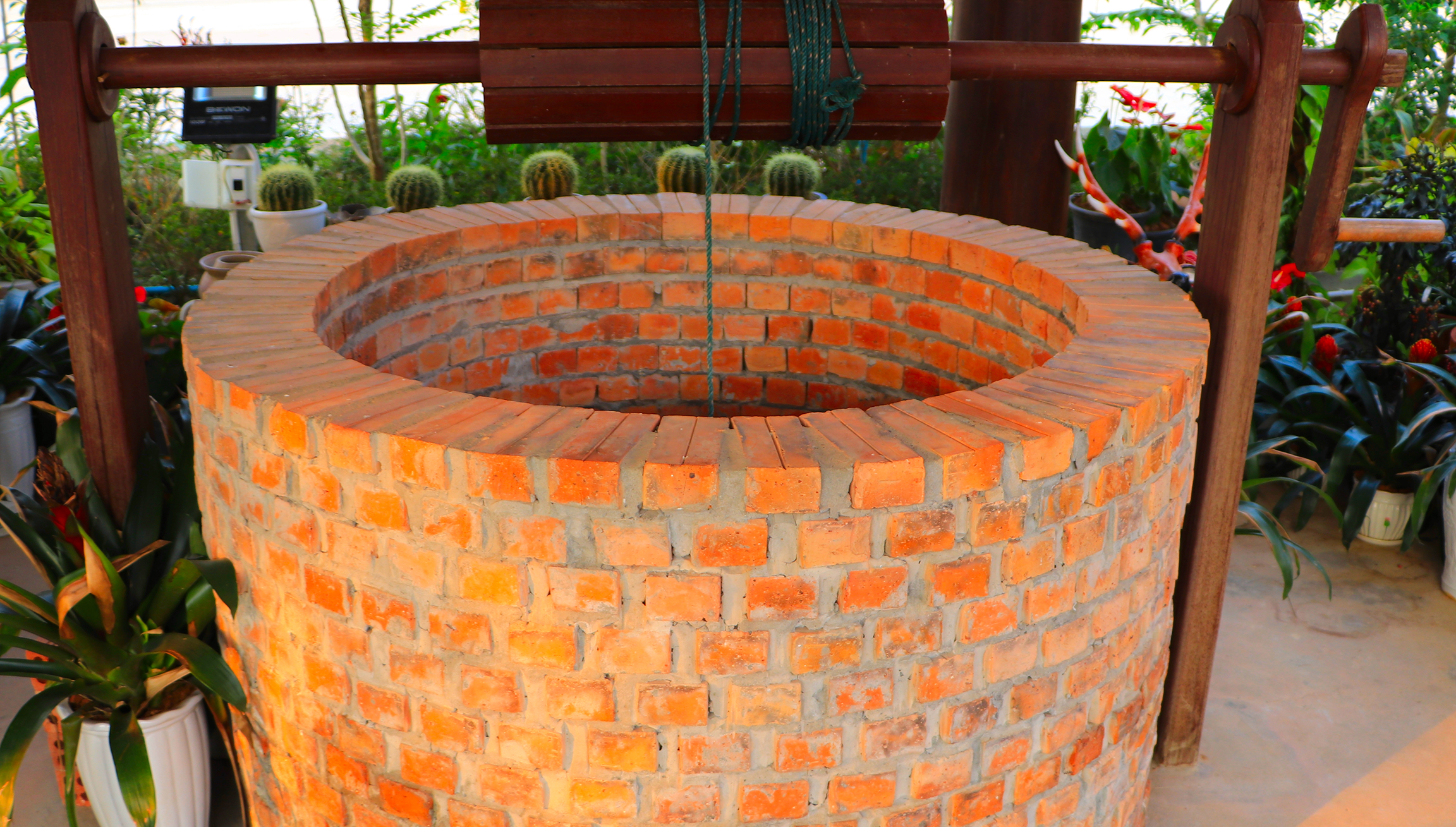
An example of a private well. Photo Credit: Shutterstock
MEET AUWRC TEAM MEMBER, JESSIE CURL
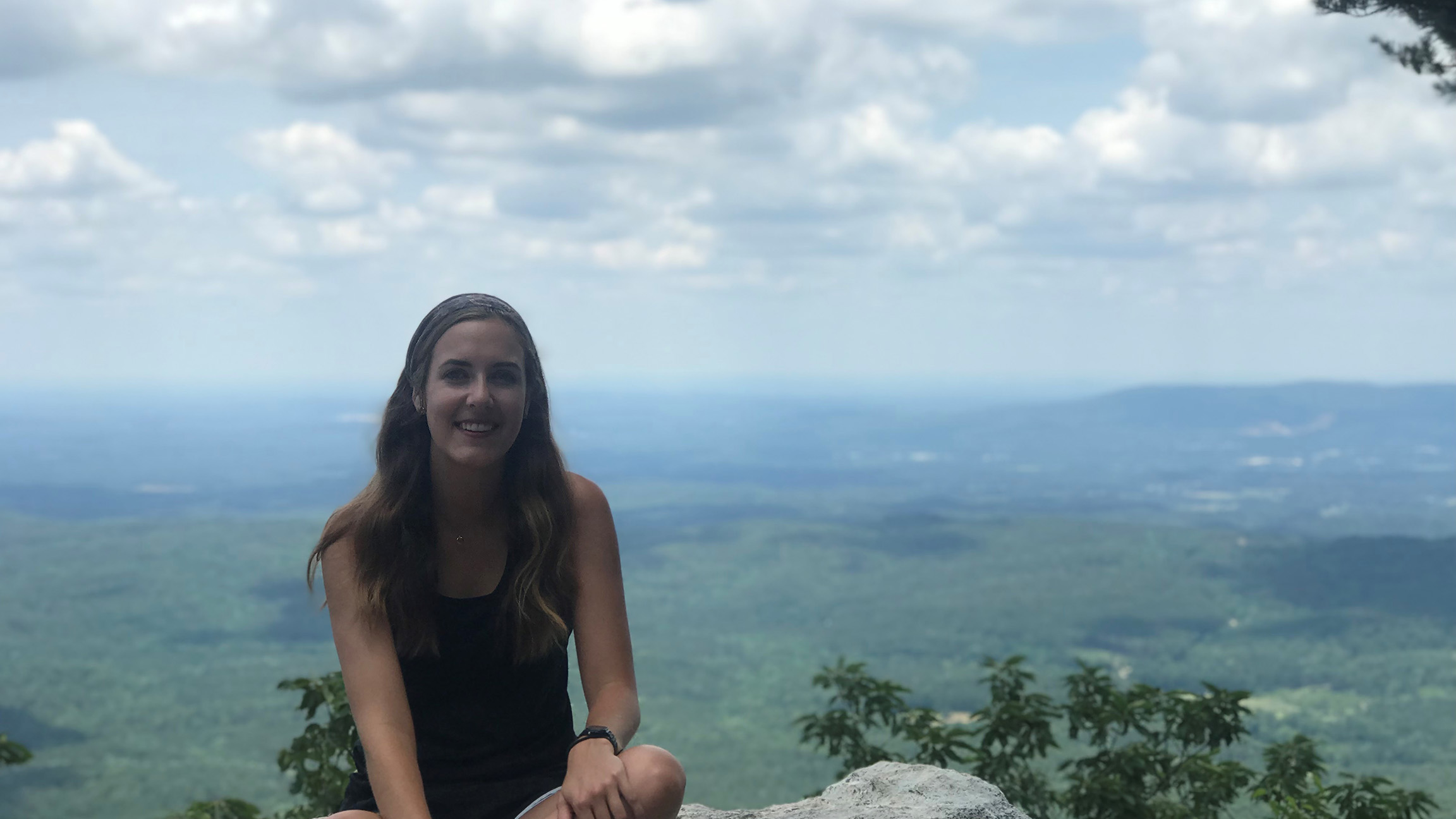
Jessica Curl (Jessie) began her Auburn University career in 2016 as an undergraduate in the College of Agriculture’s Biosystem Engineering program. After her first semester, she decided to make a change. As Curl puts it, “She was called to science,” and “wanted to have a meaningful impact by translating science objectives to a broad audience.”
Curl transferred to the Environmental Sciences program housed in the College of Agriculture’s (COA) Department of Crop, Soil, and Environmental Sciences. It was during this time that Jessie first met Dr. Eve Brantley, the Alabama Cooperative Extension System (ACES) State Water Specialist and COA faculty member.
During her Sophomore through Senior year, Curl worked in Dr. Joey Shaw’s Soils Characterization Lab. Her duties involved a wide range of things including, but not limited to processing samples, scheduling lab procedures, completing lab inventories, conducting field visits, collecting soil samples, running analyses. Her field sites were in Macon and Lee Counties within the Coastal Plain and Piedmont. Sites were agricultural fields and forested areas.
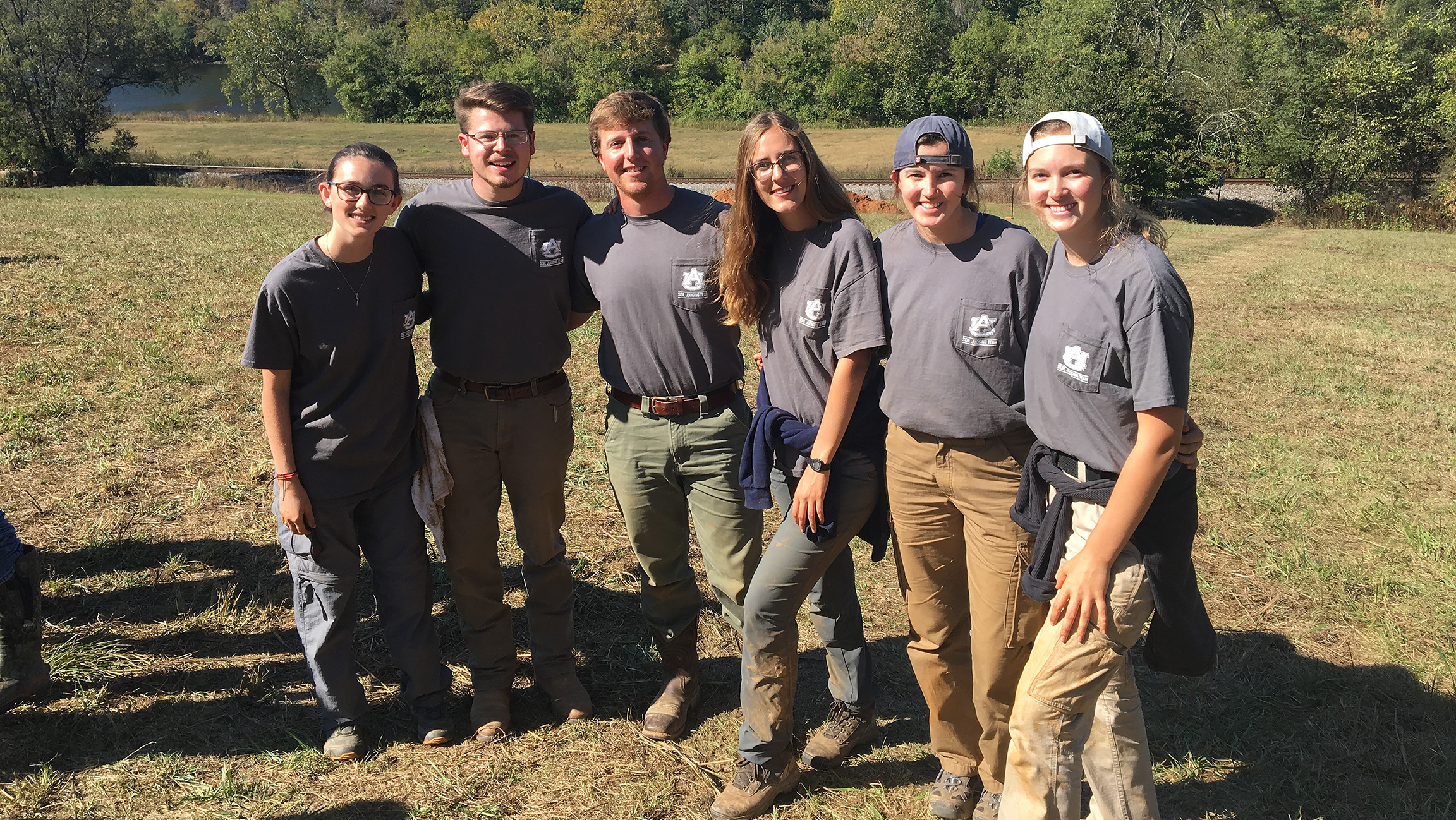
Curl with the AU Soil Judging Team. Photo Credit: Jessie Curl
As a Junior and Senior, Curl was part of the Auburn University Soil Judging Team. The team competed in an annual, regional event each fall to bring together all the Southeast land-grant Universities. The AU Team took home first place at the event her Senior year. Curl considers her time with the Soil Judging Team to be the best part of her college experience.
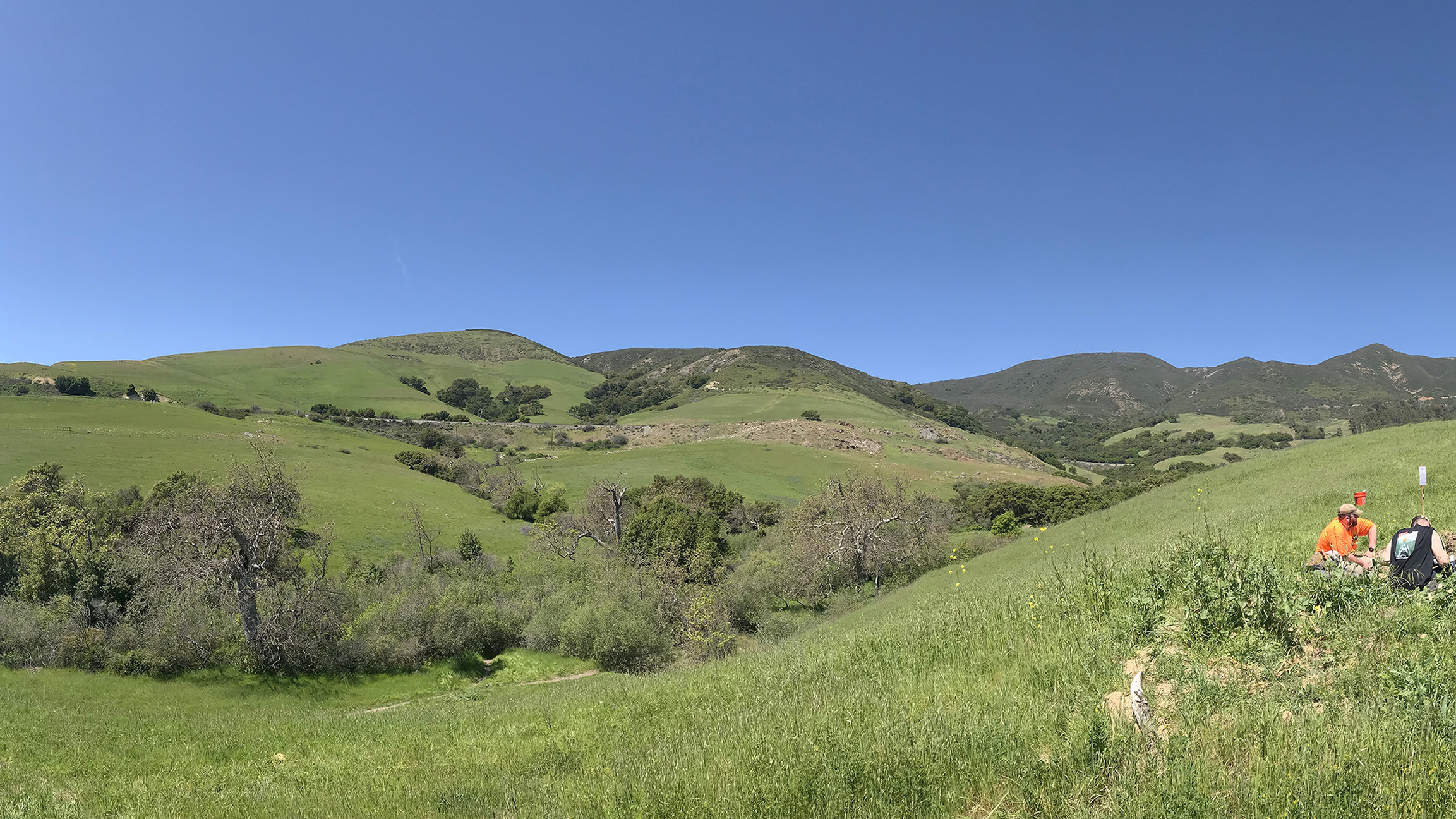
The 2019 National Collegiate Soil Judging Competetion in California. Photo Credit: Jessie Curl
During Curl’s senior year, Dr. Brantley approached her about the intent for ACES to start a private well program.
Curl’s favorite aspect of her role with the AU Water Resources Center is getting to work with such a talented team that has a vast impact across the state. “I love providing a gateway for people interested in science to feel encouraged to participate in watershed protection and research. All of our programs are able to reach such a broad audience, and they certainly give citizens the tools needed to make meaningful impact in their own communities.”
Curl hopes to begin her master’s degree in 2022 with Dr. Matt Waters, leader of the Auburn Paleoenvironmental Lab studying the Choctawhatchee Bay.
When asked where she wants her career to end up in the future she replied, “I want to do what Eve Brantley does.” After chuckling a bit, she added, “but in all seriousness, I want to be a program manager for a water resources program.
In other words: She wants to be like Eve Brantley.
Curl certainly embodies the AUWRC theme: “Bringing Science to People and People to Science.”
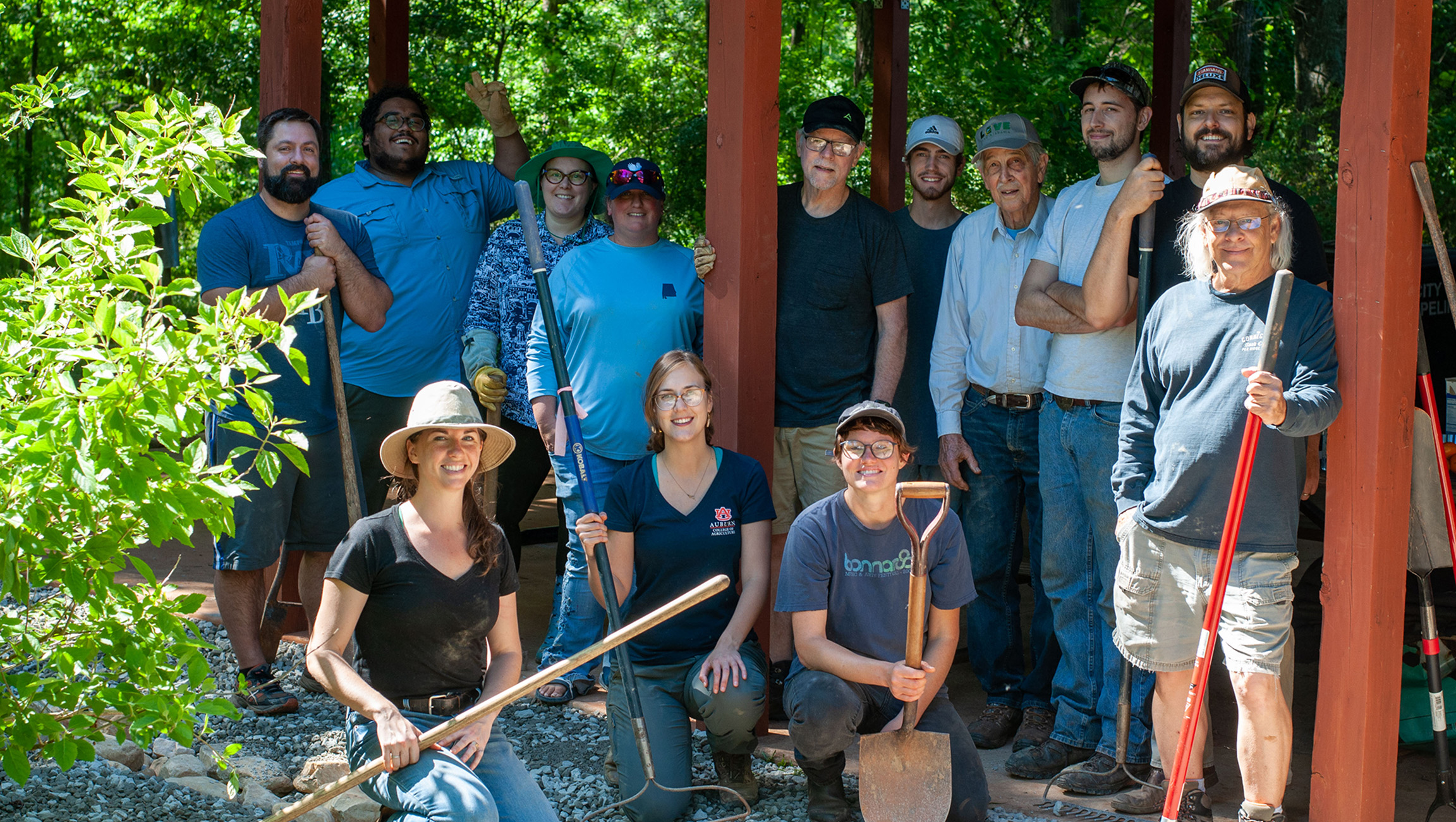
Curl during a raingarden installation at Wood Duck Nature Preserve in Opelika, AL with Alabama Watershed Stewards. Photo Credit: Bethanie Hartzog
